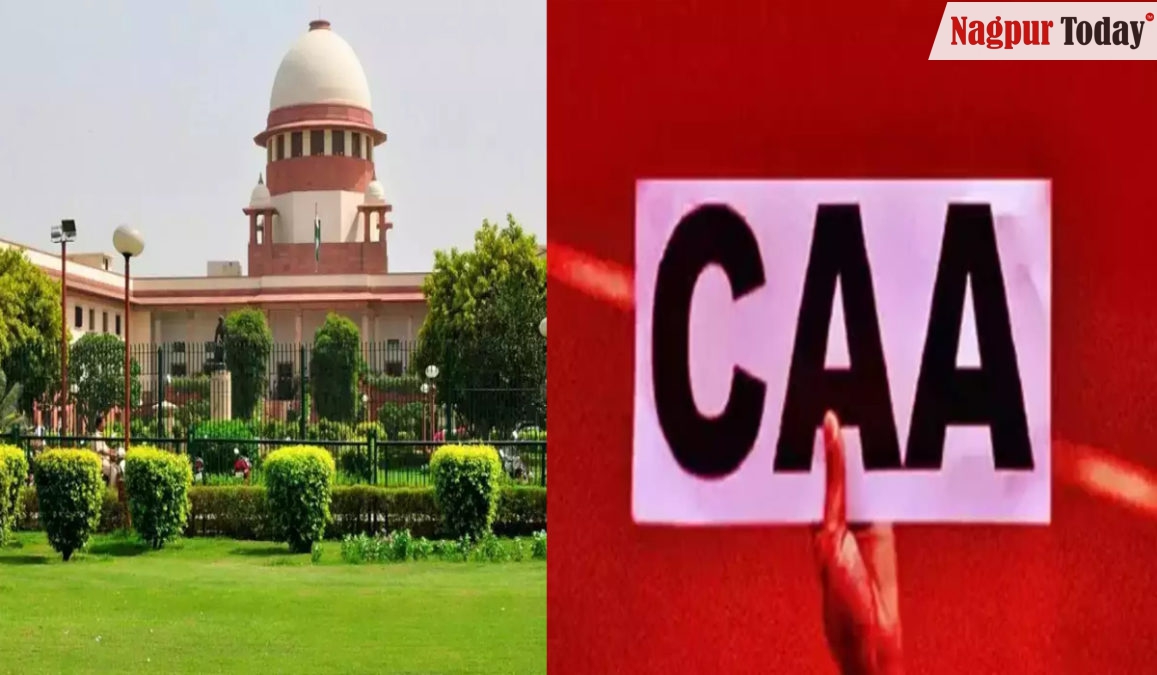New Delhi: The Supreme Court on Tuesday refused to stay implementation of the Citizenship Amendment Act, or CAA. The court also gave the government three weeks — till April 8 — to respond to 237 petitions challenging the law that was notified last week, days before the Lok Sabha elections.
The matter was heard by Chief Justice DY Chandrachud, Justice JB Pardiwala, and Justice Manoj Misra. The petitioners included the Indian Union Muslim League (a Kerala-based political party) and also opposition leaders Jairam Ramesh of the Congress and Mahua Moitra of the Trinamool.
The Home Ministry’s March 11 notification, detailing the rules for the Citizenship (Amendment) Act (CAA) of 2019, has sparked a surge in fresh petitions filed against the CAA in the Supreme Court. This marks a significant escalation in the legal battle over the controversial Act, which has faced widespread criticism for its exclusionary stance towards Muslims. Over 200 petitions challenging the Act are pending in the Supreme Court since December 2019.
The implementation of the CAA has been a central issue for the Bharatiya Janata Party (BJP), forming a major part of its 2019 election manifesto. However, it has faced a severe backlash for the Act’s perceived discrimination. There were several protests when it was first announced, the most famous one being held in Delhi at Jamia Millia Islamia and Shaheen Bagh. There has also been significant opposition in Assam, which began afresh after March 11.
In response to the sudden enactment of the Rules, numerous applications have been submitted to the court seeking a stay on both the Act and the Rules. Various petitioners, including the Indian Union Muslim League (IUML) and the Assam Congress leader Debabrata Saikia, have filed appeals for intervention. AIMIM chief Asaduddin Owaisi joined the list with an application filed on March 16.
The petitions present a range of arguments, from the CAA being discriminatory to Muslims to the allegation that it violates the Assam Accord of 1985 by contradicting its provisions regarding illegal immigration.
The Assam Accord was signed in 1985 to resolve the Assam Movement, seeking to protect the State’s indigenous population and culture. It aimed to detect and deport illegal immigrants who entered Assam after 1971 while providing safeguards for the indigenous people. The accord set deadlines for detecting foreigners and introduced measures for their deportation.
The Tamil Nadu and West Bengal Chief Ministers have unequivocally opposed the implementation of the CAA in their respective States, while Kerala became the first State to legally challenge the Citizenship (Amendment) Rules, 2024.
On March 12, Dravida Munnetra Kazhagam President and Tamil Nadu Chief Minister M.K. Stalin declared that the CAA would not be enforced in the State. He further denounced the Act as a tool that only serves to validate Islamophobia. Through a social media post on March 15, coinciding with the UN International Day to Combat Islamophobia, Stalin underscored the erosion of India’s secular values under the BJP-led government since 2014.
Similarly, on March 12, West Bengal Chief Minister Mamata Banerjee voiced her opposition to the CAA, cautioning citizens about its implications. She emphasised that it jeopardised individuals’ rights and citizenship status, urging them not to seek citizenship under the Act in order to avoid being labelled as refugees or infiltrators and losing access to government benefits.
While Kerala had filed a petition against the CAA in 2020, the Pinarayi Vijayan-led government escalated the issue by approaching the Supreme Court on March 14. In an official statement, the Chief Minister’s Office reiterated the State’s steadfast refusal to implement the CAA and announced plans for additional legal action.

















